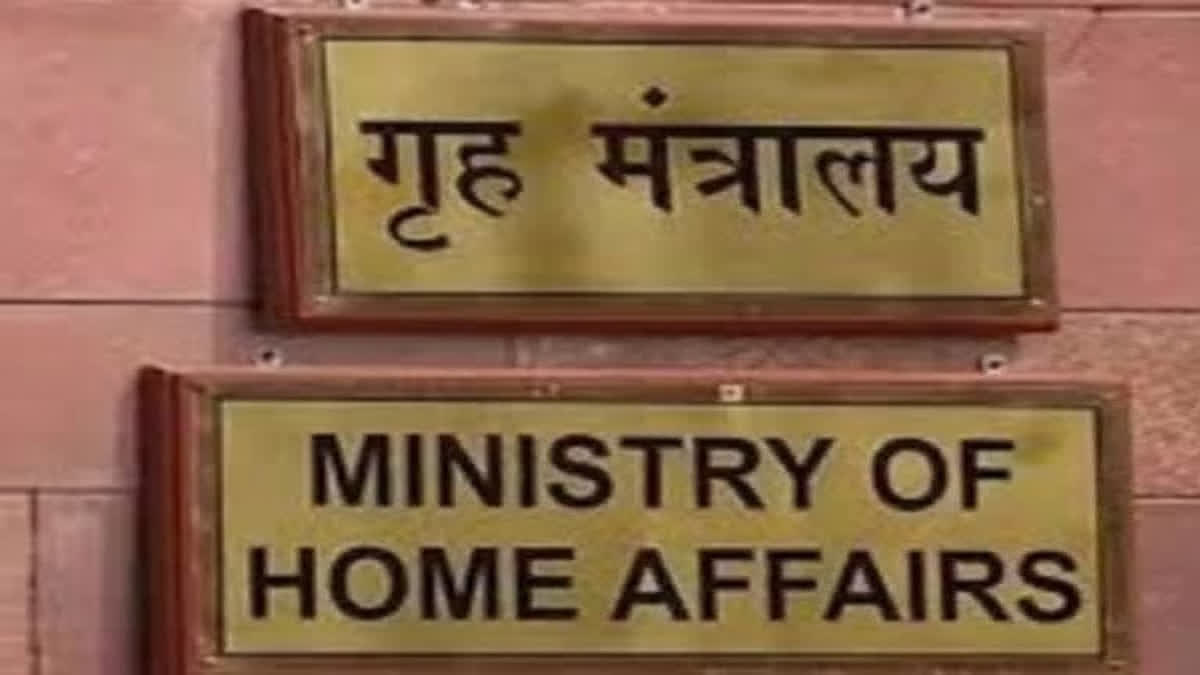New Delhi: Being aware of the fact that gangsters and prisoners operate their business and other activities from inside the jails, the Ministry of Home Affairs has asked States and UTs to take effective measures for periodic search and detection of contraband and cell phones in the cells and barracks of high-risk offenders and hardened criminals and deploy advanced jamming solutions in such areas, including the conduct of frequent surprise checks.
The suggestion was one of the most critical points that has been highlighted in the ‘Model Prisons and Correctional Services Act, 2023’ prepared by the Home Ministry.
Highlighting the issue of special provisions for security, intelligence gathering, surveillance and rotation of prison staff on duty, the Model Prisons Act says that for ensuring dynamic security, preventing escapes, instances of disorder and criminal activity in prisons, appropriate provision for intelligence gathering from prisoners, careful observation, monitoring of prisoners and analysis of the relevant information may be done by the prisons and correctional services in coordination with the intelligence wing of the state and UT police department.
It said that prisons and correctional institutions shall ensure special watch and surveillance on such inmates to prevent organised crime and continued criminal activities while imprisoned, including gang activity and intimidating witnesses. The act also categorically highlighted punishment for possessing or using mobile phones and other contraband. It said that prison inmates are forbidden from possessing or using mobile phones and other electronic communication devices in prisons.
“Whoever, being a prisoner or a visitor or a prison official, in contravention of any provisions of the Act or rules made thereunder, is found possessing or using such devices or introduces or removes or attempts by any means whatsoever, shall, on conviction before a magistrate, be liable to imprisonment for a term not exceeding three years, or fine not exceeding twenty-five thousand rupees, or both,” it said.
Referring to the visit to prisoners, the Act said that prisoners may communicate with their visitors, namely family members, relatives and friends through physical or virtual mode, under the proper supervision of prison authorities. “Visitors to inmates shall be verified and authenticated through biometric verification and identification. The name, address, photograph and biometric identification of each visitor to the inmate shall be entered into the record as prescribed under the rules,” it said.
It said that all visitors to prisoners shall be searched in a manner as prescribed under the rules. “In case any visitor refuses to get himself searched, he shall be denied admission to the prison and such decision shall be entered into the record,” it said. In a communication made with the States and UTs, the Home Ministry said that the administration and management of prisons are presently regulated by two pre-Independence Acts namely, The Prisons Act 1894’ and The Prisoners Act 1900’.
“With time, many of the provisions of these Colonial Acts were found to be outdated. It was therefore felt that these Acts need to be updated and replaced by a progressive and robust Act which is in tune with contemporary modern day needs and correctional ideology,” the ministry said. The Home Ministry thus finalised a comprehensive ‘Model Prisons and Correctional Services Act, 2023’ in consultation with various stakeholders and subject experts. The ministry sent the Model Prisons and Correctional Services Act, 2023 to the Chief Secretaries of all States and UTs in May. The copy of the same has been uploaded on the Home Ministry website on Monday.
Aware of the fact that most of the jails in India are overcrowded, the Model Prisons and Correctional Services Act has asked the State governments to provide a sufficient number of prisons and correctional institutions in the States and UTs for accommodating the prisoners, which may be constructed and maintained in such manner to comply with the requirements of this Act.
“Prisons may be designed in such a manner to facilitate segregation and separate lodging of various categories of prisoners and, or for attending to special needs of prisoners, such as women, transgender, persons with disabilities, persons suffering from a contagious disease or mental illness or substance abuse, old and infirm prisoners, undertrial prisoners, convicted prisoners, high-security prisoners, habitual, recidivist prisoners, young offenders, civil prisoners and detenues,” it stated.
The new rules have also highlighted the use of technology in prison administration. It said that the States and UTs shall ensure the integration and embedding of appropriate technology for the effective management and superintendents of prisons and for the safety and security of prisons and the inmates, which may include biometrics, CCTV systems, scanning and detection devices, radio frequency identification (RFID) and video conference facilities in every prison for prisoners to attend court hearings and trials and to provide for seamless biometric access control system for movement of inmates. Regarding the transfer of a prisoner to another State and UT, the new rule said that the transfer of any undertrial prisoner from one state to another may be done with the consent of the trial court.
Also read: Instal upgraded jammers to block mobile signals in prisons, Parliamentary Panel asks MHA


